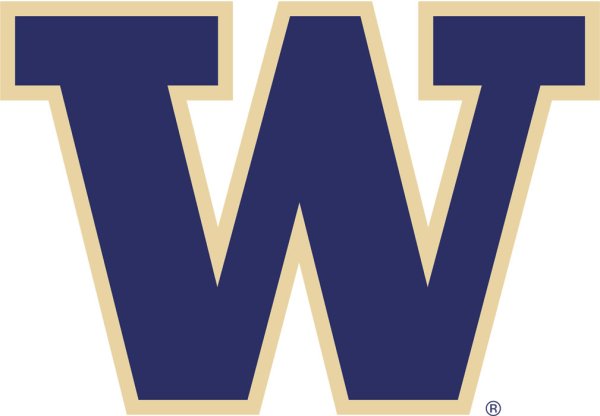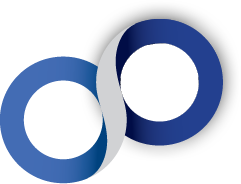CUGOS 2012 Spring Fling
Last year's 2011 Sprint Fling event info can be found here
Sponsors
Gold Sponsors
 University of Washington - Geospatial Club
University of Washington - Geospatial Club
Silver Sponsors
Sponsorship Opportunities
Sponsorship funds go towards defraying the cost of the event, including food and drinks for the participants, and to fund the activities of the CUGOS organization throughout the year. We are offering two sponsorship levels: Silver ($100) and Gold ($200). Sponsors will get their logos displayed on this wiki page and at the event, with the Gold sponsors' names/logos being somewhat more prominent. If you are interested in becoming a sponsor, please contact mpg@flaxen.com.
Overview
On Wednesday May 16, 2012, CUGOS (www.cugos.org,[1]) will be holding a special all-day "spring fling" event at University of Washington Seattle Campus in place of our regular monthly meeting. We are open to sponsors donating money for free food and drink.
LOCATION:
UW - Anderson Hall - Forest Club room 207 (Directions below)
EVENTBRITE PAGE
Please register here for this free event: http://www.eventbrite.com/event/3254583547
so we can plan for attendance and food ;)
The basic idea of this event (as determined by brainstorming ideas on IRC #cugos on irc://freenode and at the CUGOS April 2012 meeting) looks something like:
- 9-12: morning sessions (short talks followed by even shorter talks... 'lightning' style)
- 12-1: lunch
- 1-2:45: afternoon workshops
- 15 minute break/networking
- 3-4:45: afternoon hack session
- 15 minute wrap-up/networking
- BEER!
Details are given below, but be aware that all agendas and times are approximate -- we'll be loose and agile and nimble and react to changing events and schedules as our whimsies take us.
All skill and interest levels are welcome! -- please join us for as much of the day as you can.
Morning Session: Workshops/Talks (9am to 12pm)
Intro (5-10 minutes) - Aaron
Kick off talk (30 minutes) - "Demystifying the Open Source Geo Software Stack" - Craig Miller
Short Talks (15-20 min):
- Mobile Development with HTML5 and Open Source at Pierce County WA, Jared Erickson
- FOSS pipeline to produce meter-scale DEM and velocity products from commercial satellite imagery: First results for Antarctic/Greenland Ice Sheets, David Shean
- The GINA project - Will from Alaska
- R, PostGIS, and Sweave: reproducible research - Phil Hurvitz
- The counterhegemonic dialectic present in postmodern pointillist mapping frameworks and its impact on socioicthyologic regressive discourse: a nuanced look at the interdisciplinary polemics of PDAL and Numpy - mpg
- The Political Effects of Geographically Sensitive Crimerates: Preliminary Research From Washington State - Hannah Walker
Lightning Talks (5-10 min):
- Intro to TileMill - Dane Springmeyer
- GIT basics - Intro to Git, GitHub, GitPages, and Giting your Git on - Aaron Racicot
- Spatial in QT (short version!) - Craig Miller
- Rendering OSM on AWS via Mapserver - mapserver-utils and mapcache - Greg Corradini
- Building an Esri file geodatabase for OSM vectors using IMPOSM - Jubal Harpster
Meal Session: Lunch (12pm to 1pm)
Mid Afternoon Workshops (1pm to 2:45pm)
Workshops:
- "Open Source Mapping for the Windows Desktop" - Run by Dane Springmeyer (MapBox) - Windows represents over 80% of the computers worldwide. This workshop will detail how to get some key tools running on Windows without sacrificing functionality and without endlessly battling with installations. Key gochas will be covered, and techniques for filling in the gaps between tools without resorting to compiles or running a VM. Make sure to read this | blog post before coming, and bring your laptop and an open mind.
- "Open Source Mapping for the Linux Desktop" - Run by Aaron Racicot (Z-Pulley) - Linux represents no where near 80% of the computers worldwide... yet it rocks. This workshop will detail how to get some key tools running on Linux and teach users how to leverage the power of the command line. We dont aim to convert you to Linux, but it might be an unanticipated outcome of participating in this session. NOTE: Still trying to get some USB sticks and DVD's burned to be able to use the OSGeo live DVD image to play with. The intention is to have folks bring their linux laptop or have new folks use a live dvd and go over some command line foo in a small group for the 1.75 hours.
- "gvSIG / Sextante 'everywhere' workshop" - Run by Karsten V (Terra GIS) - Worshop Description
Late Afternoon Hack Session: (3pm to 4:45pm)
Option #1:
Split up into 2 groups... a server group and a client group. Have a functional demo in 2 hours, code in GitHub.
Server Group: Set up a simple WMS service via mapserver and postgis to serve King County data
Client Group: Make a simple web map using Google and OSM as base layers, adding in WMS from server group.
Option #2:
Maybe make an educational web map based on the Tissot circles. Maybe we can use the following old school blog post as inspiration to build a WMS that can be switched to any projection... or maybe play with drawing them as vectors in browser?
Annual Book Drive
Once again this year, CUGOS will be having a book drive as part of the Spring Fling event!
You will recall that the process works like this:
Clean off your bookshelves to find good-quality books appropriate for the CUGOS audience. Bring them to the Fling, where we will have a table set up in the back of the room to display them on. Attendees will browse the offerings during the day, and if they see a book they could use they will take it home.
The suggested donation will be $5 per book. All proceeds will go to cover the Fling expenses and CUGOS operations in general.
Please take a few minutes in the next few weeks to look over your shelves and find some goodies you can donate to the cause. Items appropriate for donating to the book drive include things like:
- that extra copy of "Web Mapping Illustrated", which you never quite got around to having Tyler autograph for you
- a mint-condition copy of O'Connell's "Software Project Survival Guide", which your boss gave to you because he didn't have time to read it and which you somehow never quite got around to either
- your Physical Geography college textbook from 1989, which despite the coffee stains and cigarette burns is still perfectly usable because, hey, the earth doesn’t change very much very often anyway
Directions and Transportation
Maps of event locations:
- Anderson Hall (Forest Club room 207): www.washington.edu/home/maps/southcentral.html
Parking: www.washington.edu/facilities/transportation/commuterservices/parking/daily
Driving: www.washington.edu/facilities/transportation/commuterservices/drive
Walking: www.washington.edu/facilities/transportation/commuterservices/walk
Bus/Train: www.washington.edu/facilities/transportation/commuterservices/bus-train and www.washington.edu/facilities/transportation/commuterservices/bus-train/routes
One person noted that "my personal experience is that one can find street parking north of 50th, west of I-5, and down by University Village shopping center, if one is willing to walk 30 to 45 minutes () . But many of those areas were also being converted to resident restricted zones. Bus is really easy."
Another noted that "There are a ton of routes which stops near Anderson hall (Forest Club Room): bit.ly/eKKmHE (OneBusAway pointing to nearest bus stops north of Anderson)
Contacts
- Sponsorships: Michael P. Gerlek (mpg@flaxen.com)
- Book drive: Michael P. Gerlek (mpg@flaxen.com)
- Scheduling: Aaron Racicot (aaronr (at) z-pulley.com)
- Venue: Matt Dunbar (mddunbar (at) uw.edu)
Attendees
Go see the list of attendees over at the EventBrite site: http://www.eventbrite.com/event/3254583547

